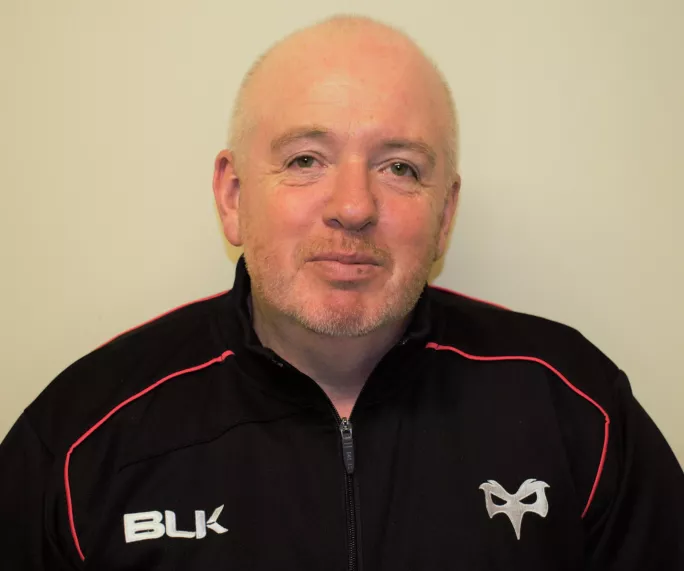- Home
- The teacher who thought he was a psychopath
The teacher who thought he was a psychopath

When Pete Roberts was 14 years old, he went on a family holiday to Devon with his parents and younger sister. His life would never be the same again.
On that holiday, he experienced several visions. He saw himself bludgeoning his family to death with a baseball bat. He saw himself drilling a hole in his father’s head. He saw himself picking up a boiling kettle and tipping it over his sister.
This was the start of the intrusive thoughts that would dominate Roberts’ life.
“Intrusive thoughts are a national phenomenon, everyone gets them and they dismiss them or move on. I can’t,” he says. “I have more than thoughts. It’s like a video that plays out in my head.
“It’s not just a feeling or an urge, I foresee it, I can’t stop myself. You re-examine them, thinking ‘That can’t be right, that can’t be true’, and they drag you deeper. I was a teenager, and convinced I was a psychopath.”
News: 17k college students receive regular counselling
Opinion: Mental health is in crisis, but colleges are responding
Listen: Adult education and mental health
Four decades on from that holiday, Roberts has his own family and is a key skills tutor and electrical engineering lecturer at Coleg Llandrillo in Colwyn Bay, North Wales.
Roberts isn’t a psychopath, he isn’t a murderer and he’s never harmed any member of his family. He suffers from Harm OCD - and, a result, has frequent and extremely violent visions of harming those he loves most. Nothing makes them disappear, nothing prevents them from occurring.
He knows this now, at the age of 52. But as a child, Roberts had no idea where these thoughts came from or why they were happening. He hid himself away in his room, avoided contact with his family, refused to look them in the eye.
“There was no internet, no research, no one to turn to,” he says. “Christmas was the worst. Everyone was always so happy at Christmas. But my father would be carving the turkey, and I’d have different ideas for the knife.”
School offered no escape. His intrusive thoughts haunted him, and he found it hard to concentrate on his studies. And although he didn’t know it at the time, Roberts also has dyslexia and dyspraxia.
“I could write creatively but it would be littered with grammatical errors. I remember my English teacher asking the entire class, ‘What’s wrong with him?’ I still remember those words to this day. It was bad enough when she used to say it just to me, but when it’s in front of the entire class...I wished for a ‘shrink me’ potion so I could disappear,” he says.
An art teacher dented his confidence further. In the hours that Roberts spent locked away in his room, he traced cartoons. Excited that he’d found something he’d enjoyed, he took his drawings into school. The teacher took one and dismissed them. It was another crushing moment.

At the age of 15, Roberts had an opportunity that would go on to shape - and, he believes, ultimately save - his life: a week’s work experience at HMS Sultan, a Royal Navy base in Hampshire.
“For the first time, I realised that when I was away from my family for a prolonged period of time, the thoughts didn’t happen,” he says. “That planted a seed in my mind.”
He applied to join the Navy at 16, but was rejected. Instead, he turned to an apprenticeship. It was another horrific experience. His mentor beat him on a daily basis.
“Looking back, I needed to be taken down a peg or two, but with his beatings...he used me as a punchbag,” Roberts says.
He then applied to his local FE college - coincidentally, the one he now teaches at: Coleg Llandrillo. He was surprised to get a place on an HNC electronics course. He was even more surprised to find that the tutors were supportive and genuinely interested in his progress. He “hung on” thanks to the confidence he gained, and completed the qualification.
But outside of college, the intrusive thoughts were getting worse than ever.
“I couldn’t live with myself. At night time, I would envisage myself going into my sister’s bedroom, picking her up, taking her outside, in a windy, wet winter’s night, coming back and locking the door,” he says.
Terrified that he was going to harm his family, Roberts applied to be an engineer in the Royal Air Force. This time, he was successful.
Discovering teaching in the RAF
Although the visions began to disappear, he struggled educationally. Being both dyslexic and dyspraxic meant Roberts had to repeat tasks over and over - to the frustration of his tutor.
“He told me, ‘You can’t polish a turd’. And he was meant to be a service instructor. You don’t forget these things. He used to tell me, ‘Go home mate, go home’. But I couldn’t go home. I managed to pass eventually. He told me, ‘You’re less of a nightmare if we let you graduate because then you’re someone else’s problem.’”
All of Roberts’ teachers had a lasting impact on him. He became determined that he too would teach - and give his students the support he had been denied. After 23 years’ service in the RAF, he was finally given a teaching post. He became a service instructor at RAF Cosford, focusing on the importance of training with empathy and positivity. There, he says, he found his role in life. And there, another door opened.
RAF Cosford had an education centre, and it was here that Roberts attended a dyslexia workshop. Still unaware that he had the disorder himself, he became hooked in learning about it and how he could support learners with it. It was the beginning of a new journey into education: he went on to earn a certification of education in post-compulsory education and training, a postgraduate degree in social science and a masters degree in dyslexia. It was only during the masters that Roberts discovered he, too, had dyslexia.
“You want a time machine to go back to school and say ‘Look, I’m not thick, I’m just different’. That’s now the message I carry, that’s the message I give to my students, I teach other tutors and put on dyslexia awareness sessions to ram home the message that you enable people through empathy,” he says.
From the force to family life
After four years as a service instructor, Roberts left the force for good. Why? The guilt of being away from his family.
He had married, but worked away from home his entire marriage, leaving his wife, Sian, to bring up their son and daughter alone. She had no idea about the reason why: he was terrified of hurting them.
“It’s a horrible thing to say, but when she was carrying either of them, I had urges to elbow the babies. I didn’t want children. I like kids, I love kids…For me there wasn’t a fear of dropping them, there was a fear of throwing them. When she told me she was pregnant, I put a blanket over my head and it took years for her to forgive me,” he says.
Back at home with the family, Roberts’ visions returned. He pictured himself drowning the children and pushing Sian from a balcony when they were on holiday.
“I just couldn’t get my head away from me throwing her off the balcony,” he recalls. “I don’t just see me do it, I see the person I’m harming looking back at me. And realising that the person who loves them most is harming them.
“I broke down and told her. She didn’t run away, she just sat me down and she was inquisitive. She was part of my treatment. When walking the dog by a lake one day, she asked what I was thinking. When I told her I could see myself pushing her in, she went to run towards the lake. I instinctively grabbed her and pulled her back.
“It was cathartic, I hit bi-realism. The thoughts disappeared.”
Sian encouraged her husband to see a clinical psychologist who diagnosed him with Harm OCD.
Tackling learned helplessness
After that, things got easier. Roberts was given coping methods, practised mindfulness, learned to tune into the sounds around him when the visions started.
When a job came up at the college that gave him a chance as a teenager - Coleg Llandrillo - he decided to apply.
“I had already got the teaching bug, and key skills vacancy in the automotive department came up. It brought me face to face with students struggling with dyslexia, students I knew I could help,” he says.
He talks about Michael, a student whose self-esteem was completely shot. Michael focused on failure no matter what - a familiar trait.
“I’m a by-product of learned helplessness and so was Michael. When you do get praise, your first reaction is to look over your shoulder because they can’t be talking to you. It’s utter self-hatred,” he says.
He worked hard with Michael to refocus his mindset. He spoke about “areas to be developed”, not “weakness”. He built up Michael’s self-esteem, praising and encouraging constantly. It’s not about changing someone overnight, he says, but chipping away at the walls they have built up.
He taught Michael to see his dyslexia as a strength - and learned to see it in the same way.
“I think of OCD and dyslexia now as my superpowers: they enable me to teach people with empathy, and help me to see danger in every situation,” he says. “I haven’t always thought of it like that, but I am lucky.”
Unknown Forces: Battling my Intrusive Thoughts is published by Trigger Press
Keep reading for just £1 per month
You've reached your limit of free articles this month. Subscribe for £1 per month for three months and get:
- Unlimited access to all Tes magazine content
- Exclusive subscriber-only stories
- Award-winning email newsletters



